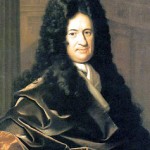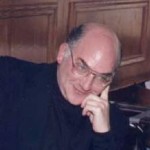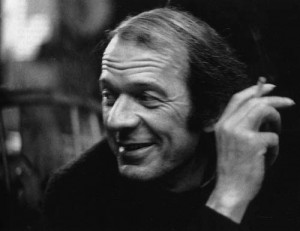Eyal Weizman wrote an article about the Isreali Army. To his surprise they are using the work of Deleuze and Christopher Alexander to define “Post-Modern” tactics. When you read the article you will see how clever the Army uses the insights of people who never had an idea that their insights should be used to kill and terrorize innocent people.
Somehow you Feel that it is Wrong that a “Killing-Machine” is using the theories that were developed to bring Harmony and Beauty (Christopher Alexander) to the world.
Ethics shows itself in two ways Norms and Values. The first part is about Morality. People have developed Rules to determine what is Good and what is Bad Behavior. Rules are prohibiting the Freedom to Act. Every time people override these rules because they have a different theory about Good and Bad or are Forced to Act in a certain Context. Most of the time We Act without Thinking.
“There is no reason to subject all the actions we undertake to the criterion: Is it free or not? Freedom is only for certain acts. There are all sorts of acts that do not have to be confronted with the problems of freedom. They are done solely, one could say, to calm our disquietude: all our habitual and machinal acts. We will speak of freedom only when we pose the question of an act capable or not of filling the amplitude of the soul at a given moment” (Deleuze).
Values are part of the Emotions. They are “personal rules” that determine the behavior of humans. Most of the time the values are not known to the person that uses the “rules“. A person = “his values“. They show themselves when he (or she) is Acting.
When we observe a person for a long time or the person observes himself (introspection) the values show themselves. If the values show themselves the person develops a personal ethics, an inner voice, the conscience.
“The fundamental question of ethics is not “What must I do?” (which is the question of morality) but rather “What can I do, what am I capable of doing (which is the proper question of an ethics without morality). Given my degree of power, what are my capabilities and capacities? How can I come into active possession of my power? How can I go to the limit of what I “can do“? (Daniel Smith).
“The astonishing thing is not that some people steal or that others occasionally go out on strike, but rather that all those who are starving do not steal as a regular practice, and all those who are exploited are not continually out on strike” (Deleuze) .
People are driven by their Emotions AND they are capable to Control their Emotions. They control their Emotions when they apply Norms (Thinking, Morality) or when they use their Conscioussness.
The Primary Emotions, are those that we feel first, as a first response to a situation. If we are threatened, we feel fear or anger. When we hear of a death, we may feel sadness. They are un-Thinking responses that we have. The Primary Emotions are not controlled by our Thinking or our “Inner Voice”. The Primary Emotions are sometimes called Desires or Drives.
The System We Live In has created many situations where our Desires are activated. All the efforts of Marketing are directed at overriding the Consciouss. All the Efforts of Propaganda are used to motivate Soldiers to Kill out of Anger.
“Reason is always a region carved out of the irrational-it is not sheltered from the irrational at all, but traversed by it and only defined by a particular kind of relationship among irrational factors. Underneath all reason lies delirium and drift” (Deleuze).
The Personal Values are overridden when something or someone activates the Desires. Everybody is Able to Kill or Harm another Being if the Right Situation is Created.
Everything that helps me to preserve my existence I take to be Good and everything that goes against my existence or the I take to be Bad. What is good is what is useful, relative to my existence, and what is bad, is what is dangerous, relatively speaking, to my continued existence. My existence or the existence of my family or group is a major priority when I act. The problem arises when different groups are trying to exist in the same context.
Are people doing something Wrong when something is activating something they are not controlling? Are we Responsible for our Desires? I don’t think so.
When we look at the “causal chain” we can see that there are somewhere consciouss people (the “architects“) who have created and perfected “killing-machines” to secure the existence of their people (The Jews). They have used their rational abilities to find a reason why they are doing this. A reason might be to protect their family and their children. They fear (a primary emotion) something is going to happen. They develop technology, methods and scenario’s to prohibit “this” from happening. Again they are “deep within” activated by something they don’t control.
Are they doing something Wrong when something is activating something they are not controlling? The Causal Chain does not give an answer. Everywhere we find the Invisible Power of Desire. Underneath all reason lies delirium and drift. We are a Body and a Soul. In this World we have Live with the Body, the Perfect Desire-Machine.
“Pushing to the utmost what one can do is the properly ethical task” (Deleuze).
All one must do is experiment with what is, to create the new. Are the architects of the Army doing their utmost best to prevent a conflict? Are they able to use their technology to make a better use of the available resources?
The principles of Alexander identify the character of Living Systems. The principles are not there to Kill but to make a Living. I am sure the military architects did not fully understand his books. Perhaps they can ask him to help.
LINKS
The 15 principles of Alexander to Create a Living System
DELEUZE AND THE QUESTION OF DESIRE: TOWARD AN IMMANENT THEORY OF ETHICS, Daniel W. Smith


 Gilles Deleuze
Gilles Deleuze